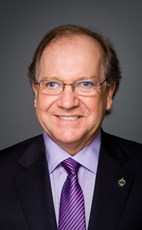Mr. Speaker, the rhetoric of the hon. member aside, the fact remains that the department undertook an extensive two-year national consultation process. It included over 100 meetings in 76 sites across Canada, at a cost of more than $8 million.
More importantly, the legislation responds to calls for action over the past 25 years by first nations and groups such as Amnesty International, the United Nations, women's organizations, and parliamentary committees to Canada for the resolution of this long-standing inequity.
Since the family homes on reserves and matrimonial interests right act was first introduced in 2008, more than 39 hours have been dedicated to debate and study of the bill in Parliament. More than half of this time occurred during committee on study of the bill, with 60 appearances from first nation organizations, individuals, and federal and provincial representatives among others. Now, almost five years later, it is time for action.

